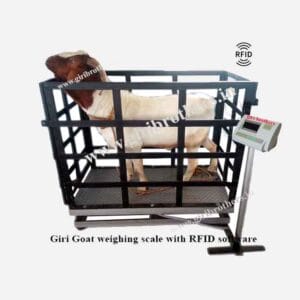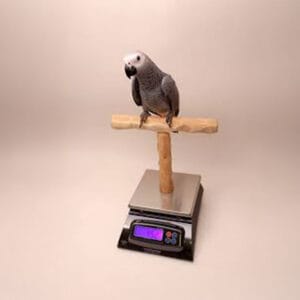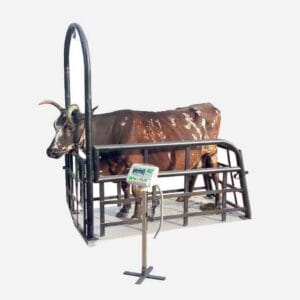Youtube-Giribrothers
A dog weighing machine, also known as a dog scale, is a specialized device designed to accurately measure the weight of dogs. These scales are commonly used in veterinary clinics, pet hospitals, grooming salons, and even at home for monitoring a dog's health. Here's an outline to explore the features and applications of dog weighing machines:
A dog weighing machine, also known as a dog scale, is a specialized device designed to accurately measure the weight of dogs. These scales are commonly used in veterinary clinics, pet hospitals, grooming salons, and even at home for monitoring a dog's health. Here's an outline to explore the features and applications of dog weighing machines:
1.Introduction to Dog Weighing Machines
- Define the purpose of dog weighing machines in monitoring the health and well-being of dogs.
- Highlight the importance of regular weight measurements for veterinary care.
2. Design and Size Considerations
- Explore the design features that make dog weighing machines suitable for dogs of various sizes.
- Discuss considerations for the platform size, ensuring comfort for the dog during the weighing process.
3. Weight Capacity and Precision
- Detail the weight capacity of dog scales, accommodating a range of dog sizes and breeds.
- Discuss the precision required for accurate weight measurements in veterinary applications.
4. Digital Display and Readability
- Highlight the digital display features of dog weighing machines.
- Discuss readability and user-friendly interfaces for veterinary professionals and pet owners.
5. Tare Functionality for Net Weight Measurement
- Explain the tare function and its significance in measuring the net weight of the dog.
- Discuss how this feature helps exclude the weight of items like leashes or blankets.
6. Units of Measurement
- Discuss the supported units of measurement, including kilograms and pounds.
- Explore options for easily switching between units based on user preference.
7. Durability and Easy Cleaning
- Highlight the durability of dog weighing machines, considering the active nature of dogs.
- Discuss features that facilitate easy cleaning and maintenance.
8. Anti-Slip and Safety Features
- Explore features designed to prevent slips or accidents during the weighing process.
- Discuss the importance of safety features, especially for anxious or restless dogs.
9. Battery Life and Power Options
- Detail the power options for dog weighing machines, considering the flexibility needed in various settings.
- Discuss battery life for portable or locations without easy access to power outlets.
10. Portability and Easy Storage
- Discuss the portability of dog weighing machines for use in different settings.
- Explore options for easy storage, especially in veterinary clinics or grooming salons.
11. Use in Veterinary Practices and Grooming Salons
- Discuss the applications of dog weighing machines in veterinary practices for health monitoring.
- Explore how grooming salons use these scales for tracking weight changes and ensuring the health of pets.
12. Integration with Veterinary Software
- Discuss the integration capabilities of dog weighing machines with veterinary software systems.
- Explore how seamless connectivity aids in record-keeping and health management.
13. User Training and Guidelines for Pet Owners
- Provide guidelines on using dog weighing machines for both veterinary professionals and pet owners.
- Discuss the importance of educating pet owners on regular weight monitoring.
14. User Testimonials and Veterinary Feedback
- Share testimonials from veterinary professionals who have successfully integrated dog weighing machines.
- Provide insights into real-world experiences and benefits.
15. Future Trends in Pet Health Monitoring Technology
- Discuss emerging trends and potential future developments in technology for pet health monitoring, including advancements in dog weighing machines.
- Veterinary Clinics: Used in veterinary practices to accurately measure the weight of dogs during routine check-ups, health assessments, and medical treatments.
- Pet Grooming Salons: Employed in grooming salons to monitor the weight of dogs before and after grooming sessions, ensuring the health and well-being of the animals.
- Pet Stores: Utilized in pet stores to weigh dogs and provide accurate information to pet owners about the appropriate size of pet products, such as food portions and accessories.
- Pet Adoption Centers: Used in shelters and adoption centers to monitor the weight of dogs as part of overall health assessments and to track changes during their stay.
- Home Use: Pet owners may use dog weighing machines at home to monitor the weight of their dogs for general health awareness, especially for pets on special diets or those with weight-related health concerns.
- Breeding Facilities: Applied in dog breeding facilities to monitor the weight of puppies and adult dogs, ensuring proper growth and development.
- Animal Research: Used in scientific research involving dogs to obtain accurate weight measurements for studies related to nutrition, behavior, and health.
- Professional Dog Training: Employed by dog trainers and handlers to monitor the weight of working dogs, service dogs, or dogs in training programs to ensure they maintain optimal health and fitness.
- Dog Shows and Competitions: Weighing machines may be used in the preparation for and during dog shows to ensure that dogs meet specific size requirements for their breed.
- Canine Rehabilitation Centers: Applied in rehabilitation centers for dogs recovering from injuries or surgeries, helping to monitor their weight as part of the rehabilitation process.
- Weighing Accuracy: The primary function is to provide precise and accurate weight measurements of dogs. This is crucial for monitoring their health, tracking growth, and managing nutrition.
- Capacity and Size: Dog weighing machines come in various sizes and weight capacities to accommodate different breeds and sizes of dogs, ensuring versatility in use.
- Easy-to-Read Display: Most machines have a clear and easy-to-read digital or analog display that shows the weight measurement in pounds or kilograms.
- Tare Function: Some models have a tare function, allowing the user to deduct the weight of a blanket or other items used to comfort the dog during the weighing process.
- Stability and Safety Features: The weighing platform is designed to be stable, and some models may include features like non-slip surfaces or raised edges to enhance safety for the dog.
- Portability: Many dog weighing machines are portable, making them suitable for veterinary house calls, mobile grooming services, or home use.
- Battery or Electric Powered: Depending on the model, the weighing machine may be powered by batteries, electricity, or a combination of both.
- Zero Reset Function: Some models have a zero reset function, allowing the user to reset the scale to zero before weighing each dog, ensuring accurate measurements.
- Durability: The construction of the machine is typically sturdy and durable to withstand the weight of dogs and regular use.
- Multi-Functionality: In some cases, dog weighing machines may offer additional features such as body mass index (BMI) calculations or memory functions to store previous weight readings.






Murugan –
test